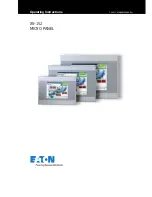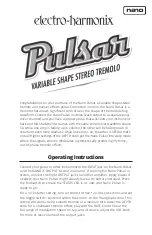
Operation Manual / Power2 850-M / 4 Product description
6 Periodic maintenance / 6.3 Cleaning turbine and nozzle ring during
operation
© Copyright 2020 ABB. All rights reserved.
HZTL4061_EN
Rev.D
March 2020
6.3
Cleaning turbine and nozzle ring during operation
6.3.1
Introduction
Approval by enginebuilder
The following instructions for wet cleaning only apply to cleaning with pure water and under
the precondition that the enginebuilder approves the process.
General
The combustion of fuels such as marine diesel oil (MDO) and heavy fuel oil (HFO) in diesel
engines causes contamination of the turbine components of the low and high-pressure
stages. Poor quality fuel in conjunction with a high exhaust gas temperature can lead to very
hard deposits on the nozzle ring, the turbine blades and particularly on the casing walls sur-
rounding the impellers.
The formation of deposits on the turbine components stems from the following combustion
products:
¡
Soot
¡
Molten ash
¡
Cinders
¡
Incompletely burnt fuel
¡
Sodium vanadyl vanadate
It is advantageous to use fuels with low ash, sulphur, sodium and vanadium contents. The
fuel must also be correctly stored, prepared and handled.
ABB Turbocharging recommends using fuels with a mass ratio of vanadium to sodium of
less than 3:1 so that the melting temperature of the sodium vanadyl vanadate is as high as
possible.
Consequences of contamination:
¡
Poor turbine efficiency
¡
Elevated exhaust gas temperatures
¡
Higher charging and ignition pressures with increasing speed of the low and high-pres-
sure stages
¡
Lower engine performance
¡
Increased rotor unbalance
Experience in operation shows that, with periodic cleaning during operation, the interval
between overhauls can be extended. The wet cleaning of a turbine described in the following
can be used for 4-stroke applications with heavy deposits (such as MDO and HFO applica-
tions, for example). Generally, turbine cleaning is not required for the other applications.
Periodic cleaning of the turbines during operation never replaces the service work where the
low and high-pressure stages are completely dismantled and mechanically cleaned.
Page
36
/
58
















































